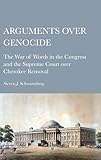It was once deemed the ungovernable frontier, ironic for the fact that it, itself, arose as a feature of the U.S. state apparatus. But states have been attempting to impose some regulatory framework over the internet since it became a fundamental feature of public communication. As with any international framework, who is to decide?
These were the issues that cropped up at the World Conference on International Telecommunications (WCIT), a busy gathering in Dubai at which delegates attempted to hammer out an acceptable treaty. The United States, the UK, Canada and various other European powers don’t feel that equality is the rule of the game here in terms of Internet governance. Terry Kramer, the U.S. Ambassador to the World Conference on International Communications, stated the position. “It’s with a heavy heart and a sense of missed opportunities that the U.S. must communicate that it’s not able to sign the agreement in the current form” (BBC News, December 13). No agreement, no treaty.
Various groups involved at the conference have registered their disappointment at the outcome. Lynn St. Amour, CEO and President of the Internet Society, outlined several concerns in a statement (December 14). “It was extremely important that this treaty not extend to content, or implicitly or explicitly undermine the principles that have made the Internet beneficial.” It was conceded that some progress had been made in various areas such as transparency in international roaming fees. The divisions lay elsewhere, though coherent statements about the disagreements have been hard to come by.
Delving deeper into this, one finds that the opposing countries would rather that other countries stayed out of dabbling in such matters as the net’s address system, a product of American derivation. Russia, China and Saudi Arabia, ahead of the Dubai WCIT event, were pressing for a greater equality of control in terms of the Internet’s technical development. That bone of contention will be hard to resolve. Creators are always reluctant to let others tamper with their goods.
It is true that countries such as China and Russia have shown an interest in establishing a security system regarding control of internet behaviour. As the statement, reproduced at the website of the Ministry of Foreign Affairs of the PRC notes, the “International Code of Conduct for Information Security raises a series of basic principles of maintaining information and network security which covers the political, military, economic, social, cultural and other aspects” (September 13, 2011).
Here, it is vital to note how the very countries that take the high ground on keeping the internet free have not been above the desire to regulate behaviour on it. The history books, hard copy or soft, will note the opprobrium that has been visited on such internet vigilantes as Julian Assange. Freedom should be allowed, yes, but not such freedoms.
The question that hovered with a certain menace to some delegates was whether a body such as the International Telecommunications Union might be given a full set of teeth.
While the ITU has the role of regulating aspects of mobile and telecommunications, the question here was how far along the role of internet governance it should go. Governance in the context of the structure of the Internet is problematic. Something as fluid as the Internet is bound to make some stakeholders nervous – at least when it comes to ventures of the regulation vultures. But the picture is a complex one, and has opened up the battle ground over what freedoms are at stake. The truth is that all parties are interested in some control. What matters is the type of control being offered.
As Phil Butler, writing in the Search Engine Journal (December 14) puts it, “It’s fair to suggest that the spear tip of controversy in Dubai is jabbing, not at freedom for users and reduced controls of the Internet, but rather positioning just ‘who’ actually does control.”
The plot thickens on a closer inspection of various supposedly “anti-censorship” groups, who can hardly be deemed to be saints of laissez faire conduct and blissful cyber anarchy. The noisily aggressive Accessnow.org, as Butler notes, is packed with Internet luminaries sourced from Google, amongst others. Bodies such as The Computer & Communications Industry Association see “an Internet power grab in Dubai.” But what of the corporate giants that bestride the Internet, issuing their own conditions and principles of conduct? For them, freedom of expression is simply another term for cyber real estate.
One of the confusions lies in what the WCIT is even about. For one, it is not about the Internet, per se, but the communications infrastructure. The World Summit on the Information Society (WSIS) concluded that governance, when applied to the Internet, is broad and complex. Critical infrastructure, the formulation of rules, policies and regulations, and the setting of standards, are but a few aspects of that. Nor is it confined to the state strictly speaking.
Various schemes have been suggested at the WCIT. A vital point to consider is what falls under the rubric of national control, and what doesn’t. Topics to consider in that regard include, and here the Internet Society offers a valuable briefing note, “routing, security, charging, QoS, spam and addressing, a reference to ICTs.” The proposals on the table have the potential to alter the Internet architecture, thereby affecting a fragmentation. Furthermore, these ignore the difference between the Internet and the telecommunication networks.
This point was strikingly made by a request by an African bloc of countries that a paragraph be added to the treaty’s preamble: “These regulations recognise the right of access of member states to international telecommunication services.”
For such organisations as the Internet Society, national control of the Internet, premised on the confusion that it is not the same thing as a telecommunications network, would jettison “robustness and resilience”. To see this, however, as a simple battle between non-regulators and regulators would be a mistake. The regulators are everywhere, but who is entitled to exercise it is a question that will be consistently fought over long after the debate on this treaty has been settled.










